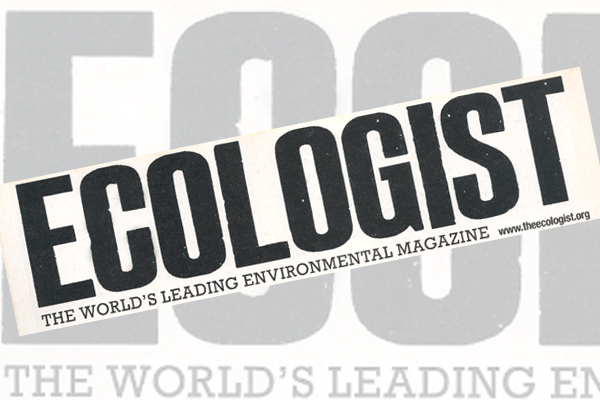Editorial: The Beauty of Barter

Years ago, when Jonathon Porrit said that capitalism was ‘the only game in town’ it was not a ringing endorsement of the free market but rather a pragmatic, grudging acknowledgement of the reality of a world ruled by the current capitalist structure. His hope was that environmentalists would recognise this, factor it into their campaigns and thought processes, and by doing so broaden the pool of ideas upon which they could draw to envisage solutions.
Instead of creative problem-solving, however, what has happened in the interim is that ‘green marketing’– where companies try to convince the public they are environmentally sound without making too many systemic changes to their business – has sprung up. In the meantime, the multinationals have continued to preach the gospel of globalisation and the free market.
But the free market is under pressure from the converging crises of climate change and resource depletion. So it’s not surprising that Porrit – in an impassioned and brilliant op ed in the Guardian recently – noted that the idea that we can reduce CO2 emissions and overcome resource shortages by carrying on along the same economic lines, with a few green bells and whistles thrown in, was ‘a fatuous fiction’.
He’s right, of course. Here and there we are seeing small acknowledgments of this fact. Earlier this year, the Malaysian Minister for Plantation Industries and commodities let it be known that his country would swap palm oil for rice with any rice-producing country willing to make the trade. Palm oil prices had not surged as they were supposed to; his people needed to eat. The logic was devastatingly simple: trade whatever you have for whatever it is that you most need.
As a warning shot about the breakdown and fragility of the globalised commodities market it could not have been more poignant. commodities traders the world over must have had a fit, before heading off to a local bar to numb the pain with a cold mojito or five.
The Malaysian example is nothing short of anarchic to those who want to maintain an orderly market, where goods are subject to official global pricing structures. But from a human welfare point of view the ‘free’ market, which has never been trustworthy, nor had our best interests at heart, can no longer claim to be what it once prized above all else –efficient. When the market fails it is local solutions, such as good old-fashioned bartering, that may just have to keep us afloat.
That and local knowledge. This is why the Giri Raja chicken story (and accompanying Ecologist film) on page 22 of this edition is so heartening. This sturdy, high-yielding fowl, bred and distributed to directly benefit the poor, rather than increase the wealth of the rich, is causing a food revolution in southern India. Rural villagers buy and sell eggs, hatch birds, provide high-quality protein for themselves and their families independent of the food multinationals. And the big guys are furious.
The Malaysian government and the villagers of southern India are doing what we are all doing: looking for alternative ways to get what we need. They are not exactly trading their goods on Freecycle, but in global terms they might as well be. Bypassing the official market for simpler systems of barter and local trade underscores the notion that the current system doesn’t work.
Perhaps it’s time for those who say that challenging the dominant model of ‘progress’ will drive us all back to the caves to consider the reason for the collapse of the recent Doha trade round. The converging crises we face make it clear that the economic and trade patterns we are used to will break down as nation after nation shuts its doors to global traders and begins to protect – maybe even revitalise – its domestic supply chains for food, goods and services. And when we hit the wall it’s not the latest iPhone we’ll be bartering for but the next meal.
It’s time to face facts. Globalisation is just soooo last century.
- This article first appeared in the September 2008 edition of the Ecologist












